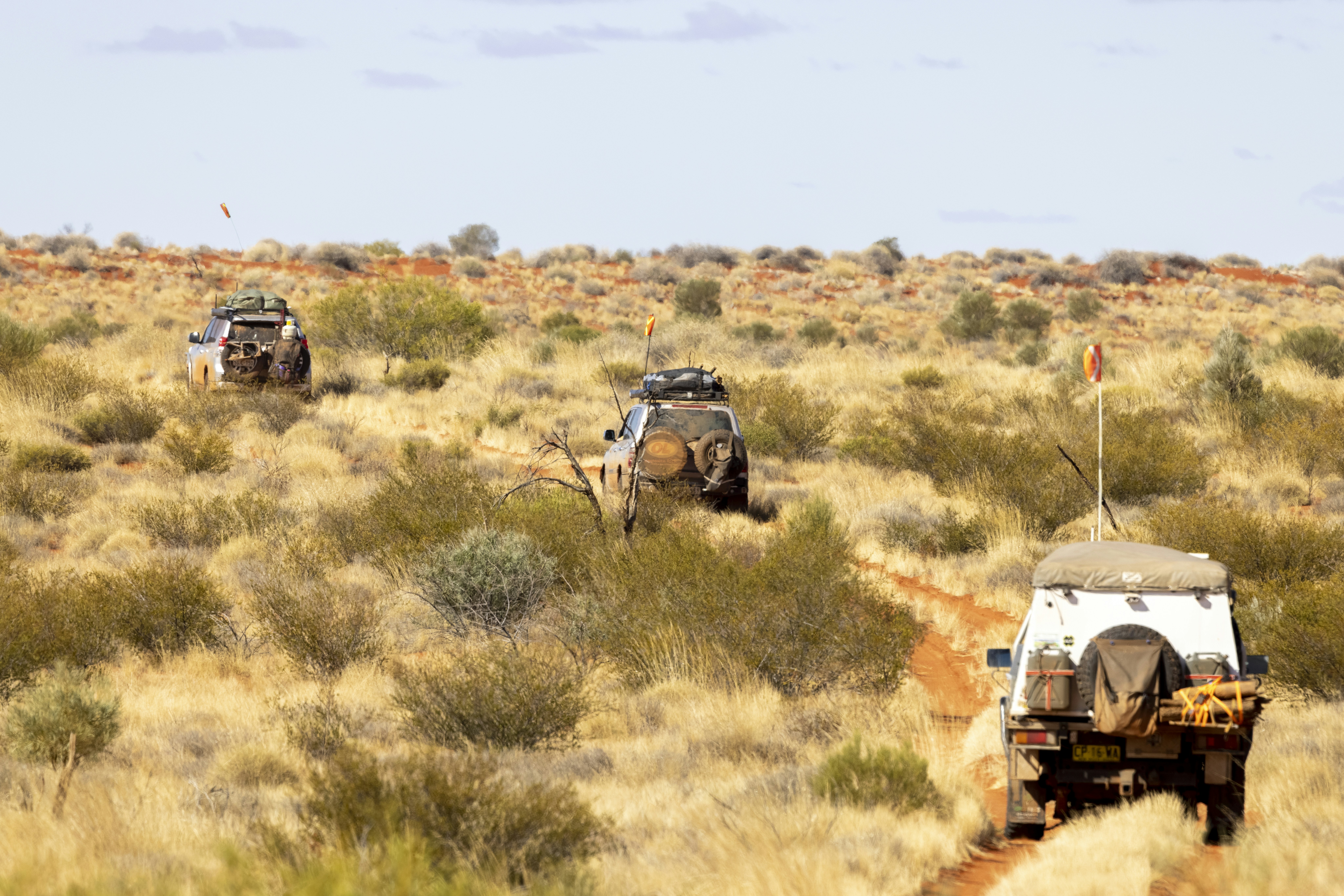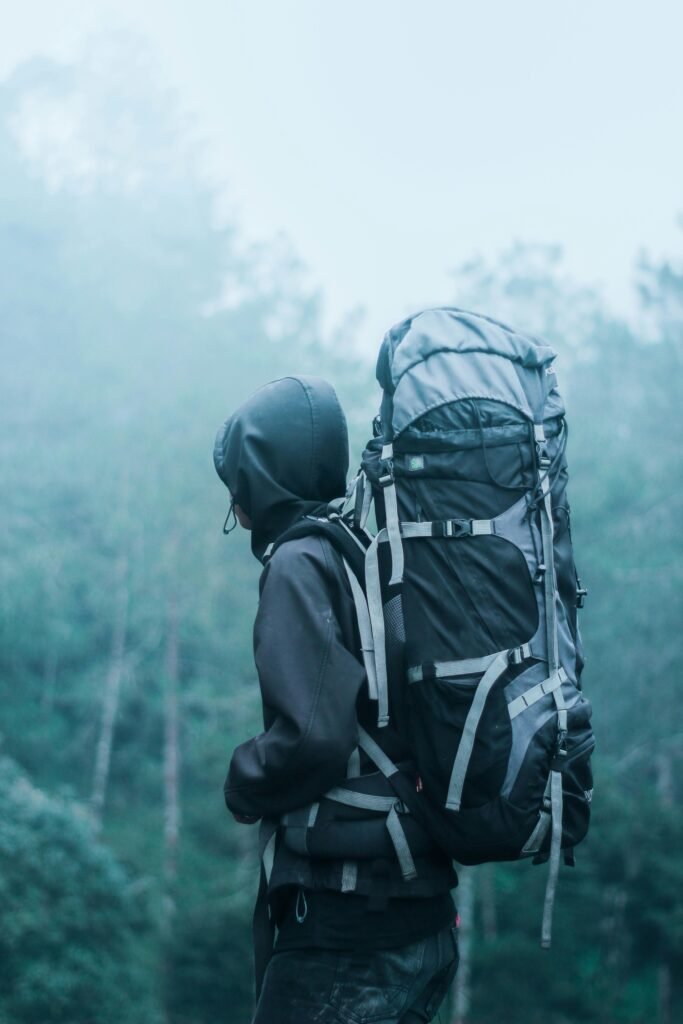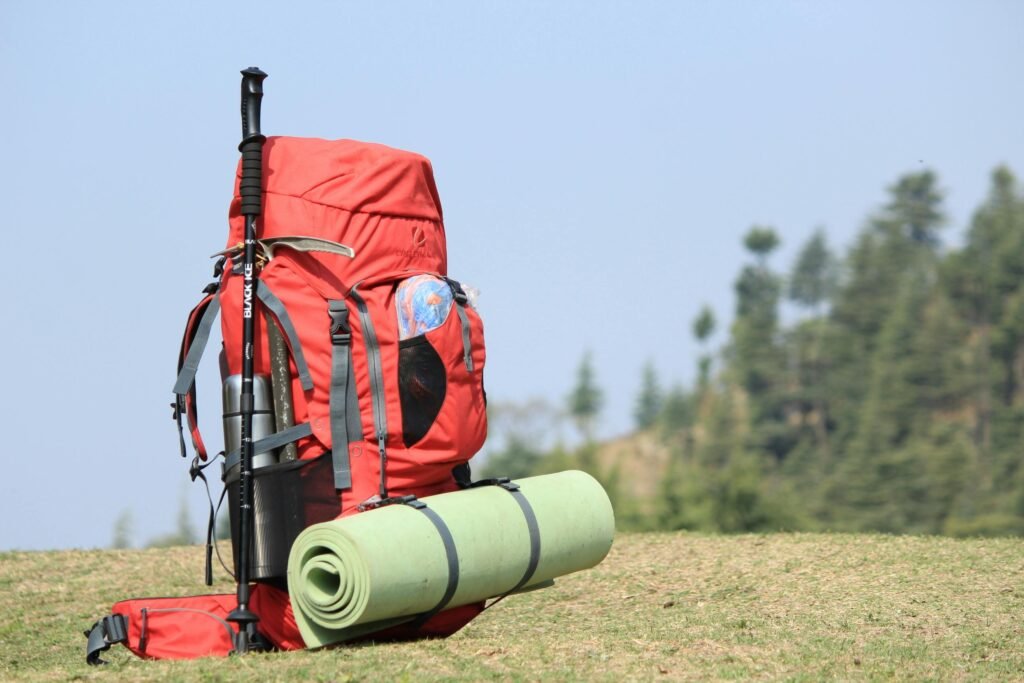Introduction to Remote Destinations
Remote destinations evoke a sense of wonder and intrigue, appealing to adventurous travelers seeking unique experiences beyond the conventional tourist routes. These secluded locales, often characterized by their breathtaking landscapes and rich cultural heritage, offer an opportunity for introspection and discovery. The allure of exploring uncharted territories lies in the promise of encountering nature in its purest form, away from the distractions of contemporary life.

The beauty of remote locations is not solely visual; they embody narratives steeped in history, tradition, and untold stories. From vast wilderness areas to isolated islands, these destinations invite travelers to connect with the environment and local communities, fostering a deeper appreciation for the planet’s diverse ecosystems. For many, the challenge of reaching these hidden gems adds an element of thrill, transforming the journey into an exhilarating adventure filled with unpredictability.
As travelers venture into the unknown, they often confront not only the physical challenges posed by distance and difficult terrain but also the mental hurdles of stepping outside their comfort zones. The rewards, however, can be profound. Immersing oneself in isolated settings allows for moments of clarity and reflection, where one can truly appreciate the wonders of nature and humanity. The experiences gained while visiting remote destinations often lead to lasting memories and personal growth.
In exploring these unfrequented areas, adventurers not only engage with the natural beauty of the world but also highlight the importance of responsible travel. Biodiversity conservation and local cultural respect are paramount considerations when navigating these fragile settings. As the journey to remote destinations unfolds, it emphasizes the delicate balance between exploration and preservation, underscoring the vital role that travelers play in sustaining the world’s less accessible treasures.
The Importance of Authentic Adventure Experiences
In an increasingly globalized world, the quest for authentic adventure experiences has emerged as a fundamental aspect of personal growth and self-discovery. Engaging with untouched cultures, exploring pristine natural environments, and navigating unique landscapes can provide transformative experiences that are often lacking in more conventional tourist destinations. These explorations offer travelers the opportunity to step outside of their comfort zones, fostering resilience, adaptability, and a broader worldview.
Immersing oneself in the rhythms of remote cultures not only enhances cultural understanding but also challenges preconceived notions and stereotypes. Genuine interactions with local communities allow for the exchange of knowledge and traditions, creating a rich tapestry of shared experiences. This deeper engagement cultivates empathy, appreciation, and respect for diversity, which are increasingly important values in our interconnected society. The conversations and stories shared with local peoples can lead to meaningful connections that last well beyond the journey, transforming fleeting encounters into lasting friendships.
Moreover, authentic adventures in unspoiled nature provide an unparalleled sense of peace and grounding that can rejuvenate the spirit. The stunning landscapes often found off the beaten path—be it a remote mountain range, a secluded island, or an isolated desert—are not only visually breathtaking but also evoke a sense of awe that enhances one’s appreciation for the planet. Such immersion in nature can foster mental well-being, promoting mindfulness and a deeper understanding of ecological interdependence.

Ultimately, choosing to embark on an authentic adventure invites individuals to break away from the familiar and embrace the unknown. It is through these experiences that one can cultivate a sense of adventure, enrich personal philosophies, and gain invaluable insights that underscore the importance of exploration in shaping identity and purpose. As we seek out these unparalleled journeys, we contribute not only to our own growth but also to sustainable tourism practices that support the preservation of these remote wonders for future generations.
Top Little-Explored Destinations
Among the myriad of places to explore on our planet, there exists a collection of remote destinations that beckon the adventurous traveler. Each locale possesses its own unique charm, marked by breathtaking landscapes and rich cultural experiences. One such hidden gem is the Bhutanese Himalayas, known for their majestic peaks and spiritual experiences. The kingdom, often referred to as the ‘Land of the Thunder Dragon,’ offers stunning vistas and a deep-rooted commitment to preserving its culture and environment. Hiking through these mountains allows visitors to connect with ancient monasteries and experience the serene beauty of the high-altitude lifestyle.
Another treasure among little-explored destinations is the uninhabited islands of the South Pacific. Home to pristine beaches and crystal-clear waters, these islands offer an idyllic escape from the fast-paced modern world. Places like Palmyra Atoll are ecologically rich, providing not only tranquility but also an opportunity to witness rare wildlife in their natural habitat. The isolation of these islands allows for a sense of adventure and exploration that is increasingly hard to find in more popular tourist spots.
Vast deserts of Mongolia stand in stark contrast to the lush landscapes of the previously mentioned locations. Known as the Gobi Desert, this expansive area spans miles of arid terrain, offering a unique opportunity for travelers to immerse themselves in nomadic culture. The chance to meet herders, explore ancient Silk Road sites, and experience stunning sunsets over rolling sand dunes creates an enticing prospect for those seeking solitude and adventure alike. Each of these destinations, from the heights of the Himalayas to the openness of the desert, offers a glimpse into the wonders of nature and the richness of human experience, all waiting to be explored.
Travel Logistics for Remote Destinations
Reaching the world’s most remote places requires careful planning and consideration of various travel logistics. First and foremost, it is essential to research the specific transportation options available for your chosen destination. For some secluded locales, accessibility may be limited to specific seasons due to weather conditions, while others may only be reachable by air or sea. Engaging with travel agencies specializing in niche explorations can provide valuable insights into the best routes and modes of transit, whether it be charter flights, guided tours, or even adventure cruises.
Necessary travel documents also play a crucial role in your journey to remote areas. Passport validity, visa requirements, and any potential travel restrictions must be verified before departure. Some destinations may require additional permits, particularly those in protected national parks or indigenous territories. Check local regulations to ensure compliance, and prepare necessary documentation ahead of time to circumvent any last-minute complications.
Health and safety considerations should not be overlooked either. Depending on the geographic location, specific vaccinations may be recommended or even required for entry. For example, vaccinations for diseases like yellow fever or typhoid could be important prior to visiting particular remote regions. It is advisable to consult with a travel health specialist, who can also provide insights into necessary medications for the duration of your stay.
Preparation gear is equally important when planning a trip to remote areas. Appropriate clothing, durable footwear, and essential supplies like medical kits or insect repellent are vital for an enjoyable experience. Lastly, familiarizing yourself with the local customs and language can greatly enhance your interaction with local communities. Thorough logistical planning will not only facilitate a smooth journey but also enrich your overall experience in these extraordinary destinations.
What to Expect in Remote Locations
Traveling to remote locations offers a unique experience that contrasts sharply with mainstream tourism. Upon arrival, one should anticipate a warm welcome from the local culture, which may starkly differ from more urbanized areas. Travelers often find that local customs, traditions, and cuisines are rich and deeply rooted in history, offering an enriching experience. Engaging with residents can provide invaluable insights into their way of life, which is often marked by a connection to the land and nature.
Accommodation in these secluded areas can vary significantly. One may find options ranging from rustic lodges to eco-friendly cabins, reflecting a commitment to sustainability and local craftsmanship. In many cases, amenities may be limited, prompting travelers to adjust their expectations. Facilities such as Wi-Fi might be scarce or nonexistent, encouraging individuals to disconnect from the digital world and immerse themselves in the surroundings. It is advisable to check before departure, as some remote locations do offer mobile connectivity, albeit at a reduced signal strength.
The weather conditions in remote destinations can also be unpredictable. Travelers should come prepared for a range of climatic scenarios, from extreme heat to sudden cold spells, depending on the geographical context. It is crucial to research the seasonal weather patterns to ensure appropriate packing of gear and clothing. Layers are often recommended to cater to fluctuating temperatures throughout the day.
Additionally, travelers should understand the logistics involved in reaching these secluded areas. Accessibility can vary, with some locations requiring lengthy treks or specific transportation modes, such as boats or all-terrain vehicles. By preparing adequately and managing expectations, travelers can fully appreciate the adventure that lies in exploring these extraordinary remote locations.
Essential Tips for Fearless Travelers
Traveling to remote destinations can be both thrilling and daunting. To ensure an enjoyable experience, it is essential for adventurers to adhere to several vital tips. Safety should always be a primary concern when visiting isolated locales. Before embarking on your journey, conduct thorough research about the area’s safety and health protocols. Share your itinerary with family or friends, and carry a reliable communication device to stay connected, even in remote settings. Contingency plans can be invaluable, should unforeseen circumstances arise.
Adapting to unexpected situations is another crucial aspect of fearless travel. Remote areas often lack familiar amenities and services. Hence, travelers must cultivate a sense of flexibility. A positive attitude can help you navigate challenges, whether a change in weather, an equipment malfunction, or a miscommunication with locals. Embracing uncertainty as part of the journey can transform potential frustrations into memorable experiences.
Choosing the right travel gear can significantly enhance your adventure. It is advisable to invest in high-quality equipment tailored to your destination’s unique conditions. Consider items such as durable footwear, weather-resistant clothing, and multi-functional tools. Additionally, packing a compact first-aid kit, water purification systems, and non-perishable food can prove invaluable during remote excursions. Lightweight backpacks and portable charging devices can also facilitate ease of travel, allowing you to focus on exploring rather than managing cumbersome gear.

Lastly, being respectful of local traditions is paramount. Every remote community has its own cultural practices and norms. Engage with locals, learn their customs, and show appreciation for their heritage. This not only fosters goodwill but can also provide valuable insights and enhance your travel experience. As a fearless traveler, embracing diverse cultures will enrich your journey and broaden your understanding of the world.
Sustainable Travel Practices in Remote Areas
Traveling to remote areas presents a unique opportunity to experience untouched nature and vibrant cultures, but it also comes with a significant responsibility. The delicate ecosystems and local communities in these regions often bear the brunt of increased tourism. Therefore, adopting sustainable travel practices is essential to preserving the integrity of these fragile environments. Sustainable travel emphasizes minimizing one’s ecological footprint while maximizing positive contributions to local communities.
One effective approach is to practice Leave No Trace principles. This involves planning ahead to avoid leaving behind waste, respecting wildlife, and sticking to established trails to mitigate soil erosion and protect native vegetation. Simple actions such as carrying reusable water bottles, utilizing biodegradable toiletries, and adhering to waste disposal guidelines can significantly reduce a traveler’s environmental impact. By equipping oneself with knowledge about the ecology and cultural practices of the area, travelers can make informed decisions that support the sustainability of these destinations.
Moreover, engaging with local businesses rather than international chains contributes to the economic well-being of the area. This can include staying in locally-owned accommodations, dining at nearby restaurants, and participating in community-led tours. These practices not only enhance the travel experience but also promote the preservation of local traditions and habitats. Travelers should also consider offsetting their carbon footprint through various means, such as investing in local conservation initiatives or volunteering in conservation projects during their stay.
In essence, the journey to remote locales should be approached with respect and mindfulness. Sustainable travel practices allow individuals to explore uncharted territories while fostering meaningful connections with the environment and the people who inhabit it. By being conscientious travelers, we can ensure that these remarkable places can be enjoyed for generations to come.
Inspiring Stories from Adventurers
Traveling to the world’s most remote places can be a life-altering experience, as many adventurers have discovered through their journeys. One such narrative comes from Sarah Thompson, who set out to explore the vast, untouched landscapes of Patagonia. In her own words, Sarah described the profound impact this adventure had on her life. Facing the breathtaking beauty of the sprawling mountains and expansive glaciers, she found solace in the seclusion of nature. The experience taught her the value of resilience and the importance of disconnecting from the chaos of everyday life. Sarah’s story reflects a shared sentiment among travelers, illustrating how remote destinations can foster personal growth and self-reflection.
Another remarkable tale comes from Jake Olsson, who embarked on a journey to the Arctic Circle. He recounted an unexpected encounter with a family of polar bears while camping on the icy shores. This awe-inspiring moment highlighted the majesty of wildlife in these isolated places. Jake emphasizes how these adventures challenge one’s perspective on life and the environment. His encounter reminded him of the fragility of ecosystems, igniting a passion for conservation and environmental stewardship. Such firsthand experiences serve to inspire others to consider the ecological implications of their travels, thus encouraging responsible adventuring.
Furthermore, the experiences shared by adventurers often underline the importance of cultural exchange. Maria Gonzalez, who traveled deep into the Amazon rainforest, met indigenous communities that welcomed her warmly. She connected with locals through shared stories and learned about their traditions. Maria believes that these interactions are essential in promoting understanding and respect for diverse cultures. Her journey exemplifies how the remote places of the world offer not only adventure but also opportunities for meaningful relationships and learning. These narratives collectively emphasize the transformative power of remote travel and encourage readers to embark on their own adventures, seeking out the unknown and embracing the encounters that lie ahead.
Conclusion: The Call to Explore the Unknown
As we reflect upon the remarkable journeys to the world’s most remote places, it becomes evident that the allure of exploration remains as captivating today as it has ever been. The destinations covered in this blog post, characterized by their breathtaking landscapes and unique cultural experiences, invite adventurers to step beyond the familiar and embrace the thrill of the unknown. Whether it is the enigmatic beauty of the Arctic tundra, the isolation of the Pacific’s hidden islands, or the haunting landscapes of remote deserts, each of these locations offers a narrative of discovery that enriches our understanding of the world.
The experiences shared by those who have ventured into these secluded realms not only serve as inspiration but also highlight the profound effects that exploration can have on personal growth. Engaging with diverse cultures and environments challenges our perceptions and expands our horizons. Encouraging curiosity in others, we can ignite a passion for adventure that leads to greater appreciation of our planet’s diversity and complexities.
Exploring the unknown, be it a distant wilderness or an uncharted corner of your own community, fosters a deeper connection to both nature and humanity. As we consider the stories of intrepid explorers from past and present, it is clear that the spirit of adventure is alive and well. Therefore, we invite you, as a reader, to take the next step by seeking out your personal adventures. Unearth the hidden gems of our world, share your experiences, and remember that the call to explore is an invitation to create lasting memories. Let the unknown not be a barrier but a pathway to new opportunities and perspectives that await just beyond the familiar.





